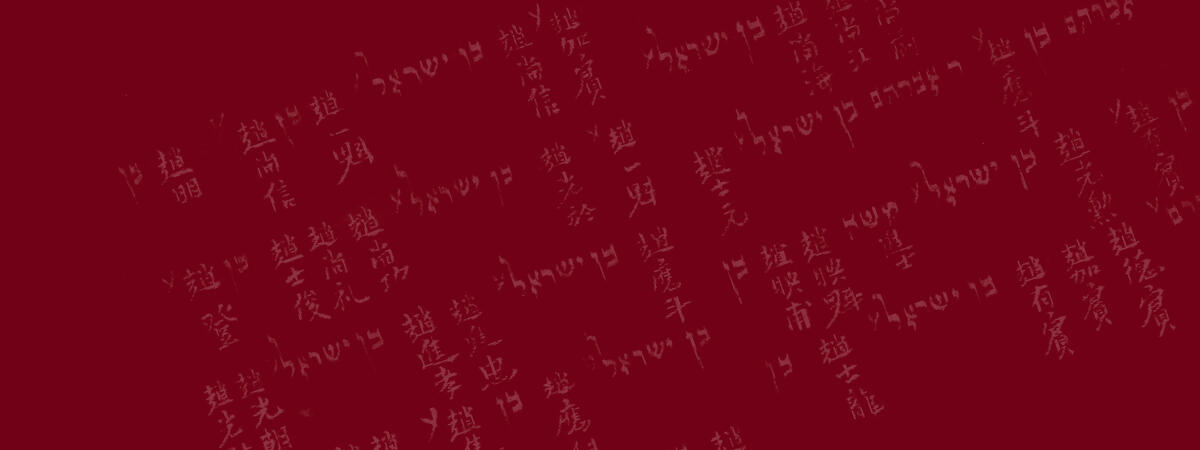
Four Basic Courses in Jewish Culture
for the Master’s Certificate and Master’s Degree
The four courses below are arranged in a logical sequence designed to explain how the Jewish people, in exile from their homeland, Israel, for almost 2,000 years, have survived and thrived despite challenges that faced them. Through systematic study, you will learn how their ancient traditions shaped Jewish communities and families, and built up their character as individuals capable of thriving despite adversity, through education, hard work, and communal solidarity. Course 1 introduces the Jewish people, their origins, their history, and their customs and beliefs. Based on that groundwork, Course 2 will teach about the festivals that are the core of Jewish community and family life. This leads to the heart of the program, Course 3, which discusses traditional Jewish ideas of self-cultivation and relationships with others, especially in the family: including love and romance, how to raise successful, well-adjusted children, and respect for parents. The program culminates with Course 4, on the classical Jewish texts, Bible and Talmud, which will deepen and reinforce what was taught in the first three by studying Jewish ideas about the proper way to live and engage in self-cultivation.
Course 1: Introduction to Jewish Culture
This course will answer the basic questions everyone has about the Jewish people and their culture. What are the fundamental characteristics of the Jewish people, their customs, beliefs? Where do the Jewish people come from? What have been the challenges they faced in their 4,000-year history? What has made them successful: a small nation that has contributed disproportionately to the world? Why do people think that Jews are wise and successful? What is their relationship to their ancient homeland Israel, re-established as a modern state in 1948.
Course 2: Jewish Calendar and Festivals
This course introduces the most colorful and meaningful aspects of Jewish culture—the ancient festivals and their special customs that have brought Jewish families and communities together for thousands of years. The Jewish lunar-solar calendar and how the festivals fit within it, and how it compares with the old Chinese lunar calendar. Shabbat, the weekly day of rest on Saturday, how refraining from work and electronic devices brings harmony to Jewish families. The Jewish new year: its distinctive customs and how they compare with Chinese New Year. The Passover that commemorates the birth of the Jewish nation at the Exodus from Egypt around 1250BCE. The fast day on the 9th day of the 5th lunar month that commemorates the destruction of the Temple in Jerusalem in 70CE. The new festival marking Israel’s Independence as a modern state on the 5th day of the second lunar month.
Course 3: Relationships and Self in Jewish philosophy
What is distinctive about Jewish personhood—one’s responsibilities to develop as an individual and to balance that with responsibilities to family and community. What about romantic relationships? How do Jewish young men and women socialize, meet, fall in love, and marry? How do they raise children? How do young couples relate to their elderly parents and grandparents? How are Jewish communities organized? How have these relationships kept the Jewish people strong over thousands of years? How have they been challenged by modern society? For example, how do modern concepts of romance and love mesh with traditional Jewish family values? How are modern liberal sensibilities of raising children integrated into the traditionally strict Jewish concept of education?
Course 4: Wisdom of the Jewish Classical Texts: Bible and Talmud
We will introduce these texts, their historical development and the wisdom they impart. What the stories of the Bible teach about the ancient history of the Jewish people, how it has inspired and strengthened them throughout their long history. How the ethical and social norms expressed in the Bible and Talmud shaped the character of Jewish people. Traditional Jewish concepts of education, family life, society. We will also ask the following questions: How is the wisdom of the ancient Jewish classical texts relevant in modern society? Where must it be adapted and / or reinterpreted?


